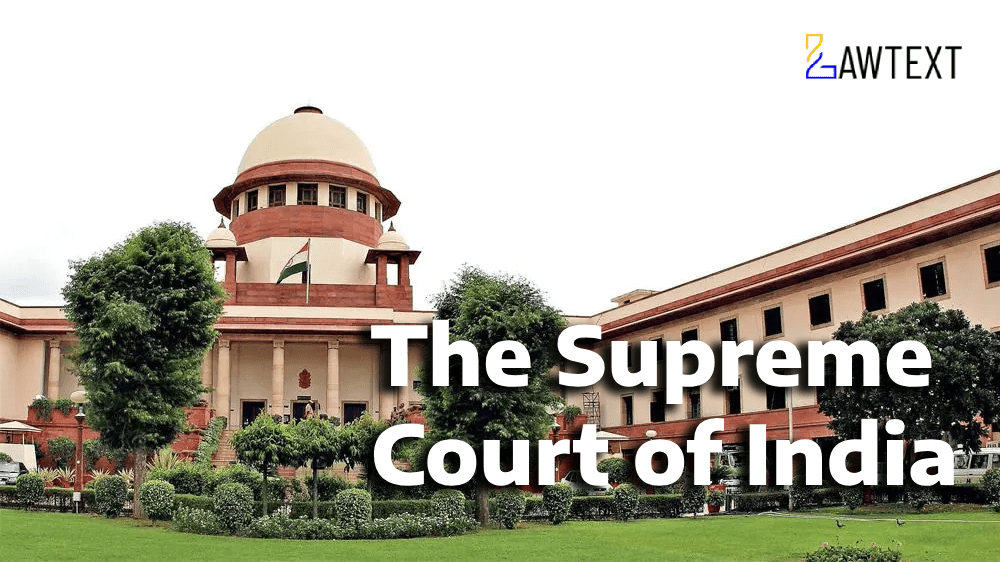Supreme Court Directs IIT Dhanbad to Admit Marginalized Student After Technical Glitch Prevents Fee Payment. Relief under Article 142: SC orders IIT Dhanbad to grant admission despite portal issues, ensuring social justice for Scheduled Caste candidate.

CASE NOTE & SUMMARY
The Supreme Court, invoking its power under Article 142 of the Constitution, directed IIT Dhanbad to grant admission to a meritorious Scheduled Caste student after a technical issue prevented him from completing fee payment during the JEE (Advanced) 2024 process. The Court acknowledged that the student had made every effort to secure admission but faced obstacles due to portal closure. A supernumerary seat was ordered to be created if necessary, ensuring no existing student is displaced.
1. Petitioner’s Background and Admission Issue:
- The petitioner, a Scheduled Caste student, secured rank 1455 in JEE (Advanced) 2024 and was allotted a seat at IIT Dhanbad in Electrical Engineering. He belongs to a Below Poverty Line (BPL) family, with his father working as a daily wager.
- The petitioner attempted to complete online admission formalities before the deadline, but a delay in processing fee payment led to his failure in securing the seat.
2. Timeline of Events:
- The petitioner’s family arranged the required fees by 4:45 pm on 24 June 2024. The petitioner logged into the admission portal and applied for the ‘float category’ of admission, but due to the portal closing at 5 pm, the payment was not processed.
3. Efforts to Resolve the Issue:
- The petitioner reached out to the IIT authorities via email. IIT Bombay redirected him to IIT Madras, but these attempts were unsuccessful.
4. Legal Aid Approach:
- The petitioner sought help from the Jharkhand High Court Legal Aid Service Committee, which directed him to approach the Madras High Court. He was later advised to approach the Supreme Court.
5. Critical Aspects of the Case:
- There is no dispute regarding:
- The allotment of the seat.
- The petitioner’s Scheduled Caste status.
- The petitioner’s compliance with formalities.
6. Efforts to Secure Admission:
- The first respondent provided login details showing the petitioner’s diligence in attempting to log into the portal multiple times on 24 June 2024. The Court found no reason to believe the petitioner lacked the funds for fee payment.
7. Court’s Decision under Article 142:
- The Supreme Court ordered that the petitioner be granted admission to IIT Dhanbad in the same batch as originally allotted. A supernumerary seat would be created, if necessary, and the petitioner is entitled to all consequential benefits, including hostel accommodation.
8. Completion of Coursework:
- The Court requested the IIT Dhanbad Director to ensure that the petitioner catches up on missed coursework so that he remains abreast with his class.
9. Disposal of Petition:
- The petition was disposed of, with the Court granting relief in favor of the petitioner.
10. Pending Applications:
- Any pending applications were also disposed of.
Acts & Sections Discussed:
- Article 142 of the Constitution of India: The Court used its special power under Article 142 to ensure complete justice by directing IIT Dhanbad to grant admission to the petitioner, despite the portal's technical issues.
Ratio Decidendi:
The case revolves around the principle of ensuring social justice for marginalized students and preventing the denial of educational opportunities due to technicalities. The Supreme Court emphasized that the petitioner, having done everything in his power to secure admission, should not be penalized due to technical glitches, especially given his socio-economic background.
Subject:
- Education Law
- Constitutional Law – Article 142
- Right to Education for Marginalized Groups
- Article 142
- Social Justice
- Scheduled Caste
- Supernumerary Seat
- Technical Glitch
ISSUE OF CONSIDERATION
Atul Kumar Versus The Chairman (Joint Seat Allocation Authority) and Others
Citation: 2024 LawText (SC) (9) 303
Case Number: Writ Petition (Civil) No 609 of 2024
Date of Decision: 2024-09-30
Case Title: Atul Kumar Versus The Chairman (Joint Seat Allocation Authority) and Others
Before Judge: [Dr Dhananjaya Y Chandrachud .CJI. , J B Pardiwala J. , Manoj Misra J. ]
Appellant: Atul Kumar
Respondent: The Chairman (Joint Seat Allocation Authority) and Others

